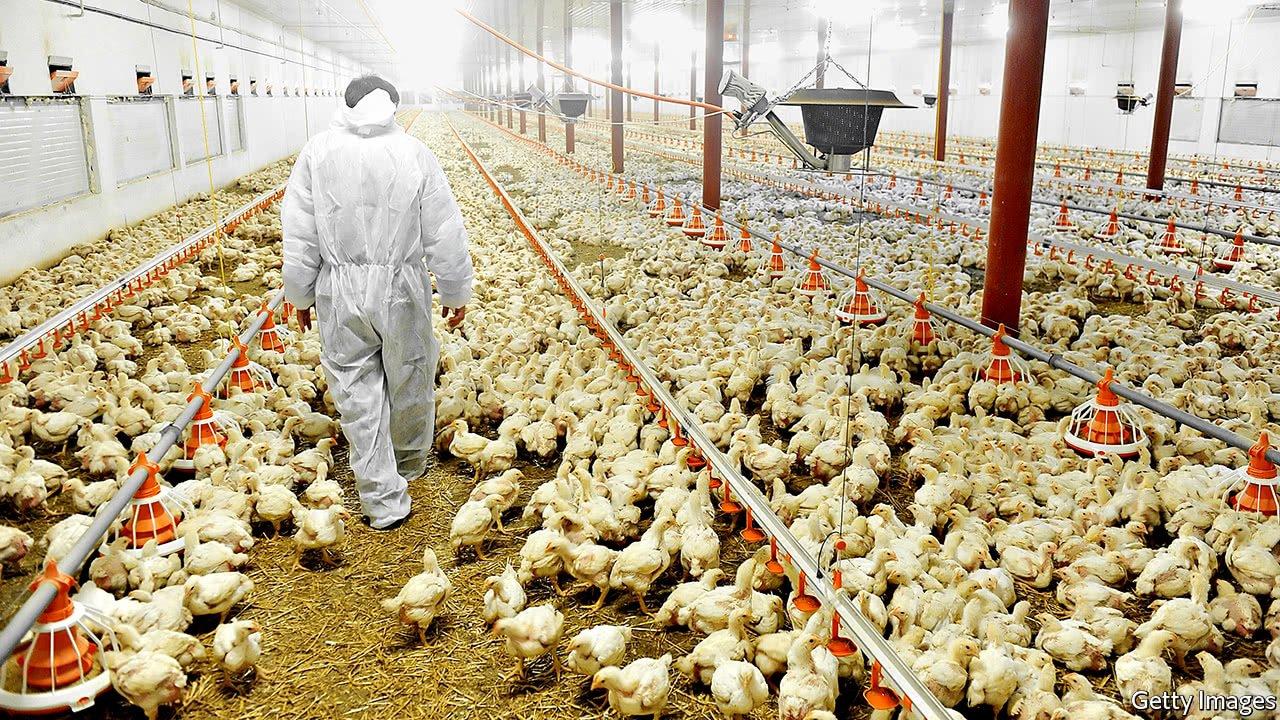By Brian Ly | Staff Writer

Living a short life is miserable. Being kept in a confined cage is even worse, but this is the reality for the majority of animals across the United States. This is only one of the numerous cruel practices industrial farming has utilized, and it has become a one-way road to destroying the planet.
Industrial farming has become an unsustainable form of agriculture, exacerbating problems stemming from animal welfare and environmental pollution.
The Natural Resources Defense Council describes industrial farming as “large-scale, intensive production of crops and animals, often involving chemical fertilizers on crops or the routine, harmful use of antibiotics in animals.”
Industrial farming facilities are infamous for their poor treatment of animals raised in Concentrated Animal Feeding Operations (CAFOs), which replace grazing space with packed pens or claustrophobic cages.
However, cheaper costs or efficiency in product growth is no excuse for the cruel treatment of animals.
While not only raising animal welfare concerns, industrial farming also has adverse effects on the environment.
Unlike small farms that can reuse their animal waste as fertilizer for crops, large CAFOs produce too much manure, which often contains pathogens and chemicals. In a study written by the National Association of Local Boards of Health, just one farm can produce more waste than some U.S cities.
Because of this, most of the untreated manure is disposed of into the land. However, the excess production of manure erodes soil and contaminates water, making land unsuitable for use.
Emissions from manure produce air pollutants, and CAFOs are a large source of greenhouse gases. These pollutants and gases contribute to global warming, an issue scientists warned would have to be addressed in less than 12 years as even half a degree of change in temperature would increase natural disaster risks.
However, industrial farming is not the only option.
Supporting local farmers and organic farming can help support communities without relying on harmful practices. Organic farming, while more expensive than its non-organic counterpart, is the widely accepted method of sustainable farming. Without the usage of synthetic fertilizers and pesticides, not only is the land preserved better but crops and animals are also treated better.
Organic farmers treat their animals with care, giving their animals grazing space to move around in without cramming them into tight cages and cruel conditions.
Unlike industrial farming, organic farming is able to take and give back properly.
The World Wildlife Fund recommends eating more sustainable diets that not only meet nutritional needs but are also good for the planet. These lifestyle changes include eating more plants, eating a diverse plate of food, moderating meat consumption, and buying foods that meet credible certified standards.
Look for logos from Fairtrade, Freedom Food, and other companies that protect the welfare of farmers, workers, and the animals they raise.
It may not be a perfect solution, but the shift back to diets and agriculture without reliance on animal cruelty and harmful chemicals is paramount to reclaiming the health of the planet. Feeding the world is a difficult task, but industrial farming has never been the solution and sustainable alternatives have been fruitful in supporting everyone.
